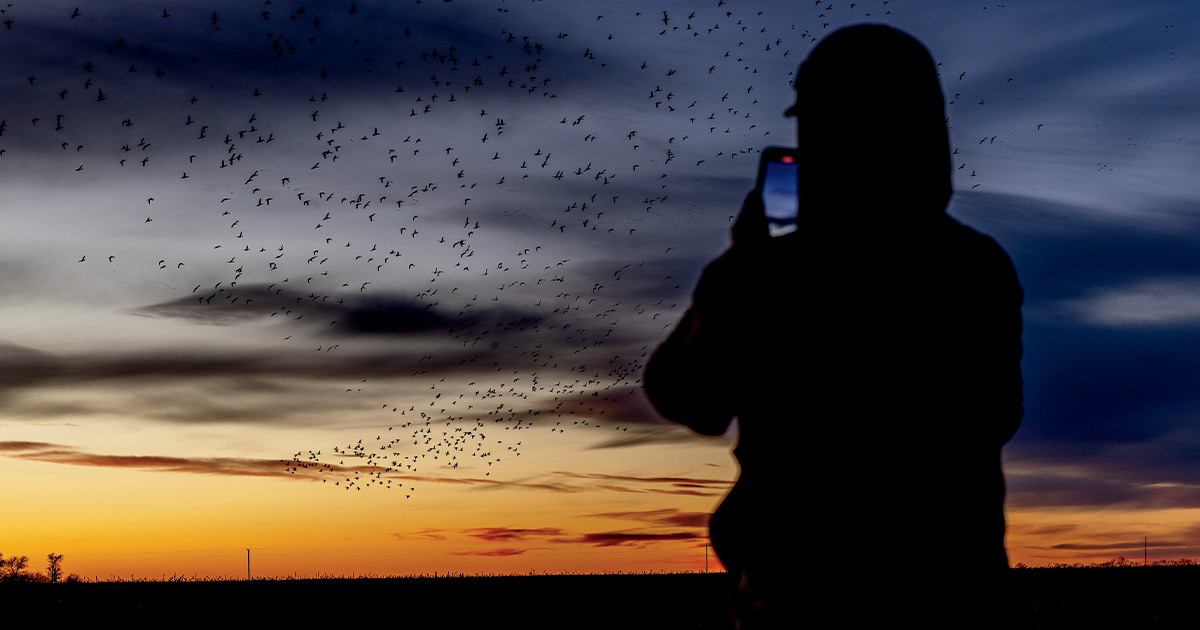Sporting Life: Being There
To reap waterfowling's rewards, you first have to show up
To reap waterfowling's rewards, you first have to show up
By Greg Hoch

There are many reasons to spend time in a duck blind. At the top of the list is to harvest a few birds to share with family and friends at the dinner table, perhaps accompanied by a nice bottle of wine. But in truth, we hunt for a lot more than waterfowl. We hunt for solitude in an increasingly crowded world. We hunt for what Wendell Berry calls the “peace of wild things.”
Many waterfowlers will tell you that some of the most important conversations they’ve ever had took place while they were hunting ducks. There’s just something about the close confines of a duck blind that invites thought and discussion during those slow times when the birds aren’t flying.
In Pilgrim at Tinker Creek, Annie Dillard describes coming around the corner of a building just in time to see a mockingbird flare its wings before landing on the lawn. A step later and she would have missed it. She wonders how many other special moments she misses each day. “The answer must be, I think, that beauty and grace are performed whether or not we will or sense them,” Dillard writes. “The least we can do is try to be there.”
I can’t count how many times, while typing away with my four-legged friend asleep by my desk, I’ve glanced up and caught a glimpse of a warbler or hawk darting past the window. My mind often wanders to what’s going on by the creek that runs through the back of our property. What about the marsh at a nearby public hunting area? In most cases, we aren’t there to witness the arrival of migrating waterfowl at our favorite hunting spots, but it’s the possibility of new birds that motivates us to keep going when the hunting has been slow.
‘‘But as waterfowlers, don’t we owe it to ourselves to try to experience as many of these moments as possible? Shouldn’t we try to ‘be there’ as much as we can?’’
A fruitless hunt can be an exercise in frustration for some hunters. Others can walk out empty-handed, with the same number of shells that they had when they walked in, and still come away with a sense of satisfaction. In my younger years, a drive to a hunting spot was filled with hopes for action and excitement—whistling wings, successful shots, our retriever crashing through the cattails after a bird. A few decades later, I am just as hopeful for some peace and quiet. If a little action is sprinkled in, all the better. My younger self too often judged hunting “success” by the weight of the game strap at the end of the morning. But success can also be measured by lower blood pressure and greater peace of mind.
How many times have we been in a duck blind and witnessed grace and beauty in the air or on the water? Sometimes that beauty takes the form of waterfowl and other wildlife, and other times it’s the light, colors, and shadows on the landscape. Of course, we’ll never see all the amazing moments that happen in the marsh. That’s the price we pay to live in “civilization” with all that it entails. But as waterfowlers, don’t we owe it to ourselves to try to experience as many of these moments as possible? Shouldn’t we try to “be there” as much as we can?
From that perspective, every hunt is a success, no matter how many birds we are fortunate enough to harvest.
Ducks Unlimited uses cookies to enhance your browsing experience, optimize site functionality, analyze traffic, and deliver personalized advertising through third parties. By continuing to use this site, you agree to our use of cookies. View Privacy Policy